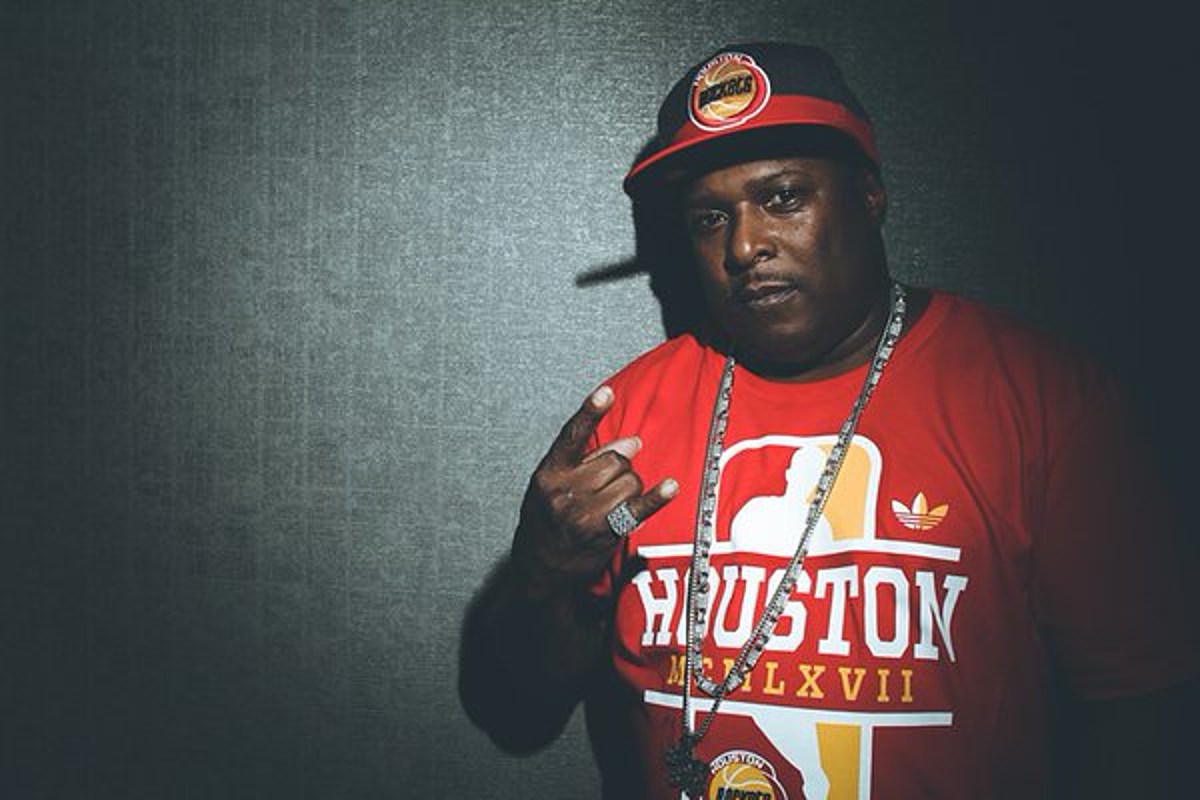Lil Rob Net Worth - Exploring The Meaning Of A Hip-Hop Prefix
Many folks often wonder about the financial standing of music artists, particularly those who have made a name for themselves in the rap scene. It's a natural curiosity, really, to consider what someone's career might bring in terms of prosperity. When we hear names like "Lil Rob," it certainly brings to mind a whole lineage of performers who have chosen a similar kind of identifier for themselves.
This naming practice, using "lil" as a kind of prefix, has a rather interesting story behind it within the world of hip-hop. It's more than just a short way to say "little"; it carries a bit of cultural weight and a connection to the very beginnings of the genre. So, as we think about someone's financial journey, it's pretty helpful to also look at the broader landscape of how artists present themselves and what that might mean for their professional path.
Understanding the common threads that tie these artists together, from their stage names to their musical approaches, can actually give us a better feel for the whole picture. It’s not just about a number; it’s about the work, the art, and the way they connect with their listeners. So, let's just take a closer look at what "lil" really means and how it has shaped so many well-known figures in music.
Table of Contents
- The Story Behind "Lil" in Rapper Names
- How Does a Rapper's Name Connect to Their Success?
- What Kinds of Artists Use the "Lil" Tag?
- Is There a Common Thread Among "Lil" Artists?
- Looking at the Bigger Picture of "lil rob net worth"
The Story Behind "Lil" in Rapper Names
When you hear a name that starts with "lil," it often brings to mind a certain kind of performer, especially in music. This little word, "lil," is actually just a shorter way of saying "little," and you might see it spelled with an apostrophe sometimes, like "lil'" or "li'l." It's a pretty common sight, so it's almost everywhere, really. People use it in all sorts of places, even in cartoons or comic books, where it can point to a smaller version of something or someone. But in the music world, it has a rather special meaning, a bit of a history all its own.
You know, the history of this word in hip-hop is actually quite interesting. It started out as a way for people to show affection, a kind of friendly nickname that folks would use with their close companions. Think of it like calling a buddy "Little John" or something similar, just a warm, familiar way to address someone. This practice, you see, was pretty common in the neighborhoods where hip-hop first started to take shape, particularly in Black communities. So, as music artists from these areas began to make their mark, they often kept these personal, affectionate tags as part of their stage names. It just felt natural, a way to keep a piece of their beginnings with them as they grew.
This tradition, in a way, helped to build a sense of connection between the artist and their roots. It wasn't just a random choice; it was a nod to where they came from and the people who knew them best. So, when you consider how many artists have adopted this style of name, it really speaks to the strong cultural ties within the genre. It's a pretty powerful symbol, actually, of humility and connection, even as artists reach for bigger things.
Where Did "Lil" Come From, Anyway?
So, where did this specific naming convention really get its start within the music scene? Well, as we were saying, it comes from a very down-to-earth place. It’s like how you might call a friend by a shortened version of their name, or give them a friendly little tag. This kind of casual, personal way of speaking was very much a part of everyday life in the communities that birthed hip-hop. It was a sign of closeness, a way of showing you were part of the group, and that you belonged.
This is why, you know, so many early performers in the genre decided to keep these kinds of names. It just felt authentic, a true reflection of their identity and their background. It wasn't about trying to be grand or overly formal; it was about being real and approachable. And this sense of authenticity, I think, is a big part of why these names stuck around and became so popular. It really resonated with audiences, who appreciated that genuine connection to the street and to the community.
Even someone like Lil Wayne, who wasn't the very first to use "lil" in his name, certainly made it famous in a big way. He's known for putting together lines that are almost like poetry, and in one of his songs, "No Love," he even managed to make some listeners feel like he could stand toe-to-toe with a lyrical giant like Eminem. His delivery, with its unique rhythm and words that hint at deeper meanings, along with a charming way of speaking that just speeds up as he goes, really showed what was possible. It's pretty clear, then, that this naming style became linked with artists who brought a lot of skill and a distinct voice to their craft, which, you know, can certainly affect someone's "lil rob net worth" over time.
How Does a Rapper's Name Connect to Their Success?
It's interesting to consider how a performer's chosen name might play a part in their journey to becoming well-known and, ultimately, their financial standing. A name like "Lil Rob," or any name starting with "lil," tends to suggest a certain kind of origin or style, a connection to the grassroots of hip-hop. This can create an immediate sense of familiarity for listeners, a feeling that this artist is approachable and genuine. That initial impression, you know, can be pretty powerful in attracting an audience and building a loyal following.
Beyond just the name itself, the sound and style of the music are, of course, absolutely essential. The "lil" prefix often became associated with certain musical movements and regional sounds. For example, some of the artists who adopted this naming style were part of the Atlanta trap music scene. This kind of music, which has gone through a few generations of artists, tends to have a particular vibe, often with melodic elements and a distinct way of delivering words. The ability to create a unique and appealing sound is, very truly, a major factor in an artist's ability to gain traction and earn a living.
So, while the name might open a door, it's the artistry that keeps people listening. The way an artist puts words together, the rhythm they choose, and the overall feeling of their songs all contribute to their appeal. This creative output is what truly builds a career, and it's what translates into tangible success. It’s pretty obvious, then, that the artistry itself is a key component in determining something like "lil rob net worth," because without the compelling music, the name alone wouldn't carry much weight.
The Impact of a Unique Sound on "lil rob net worth"
When we talk about the financial success of a music artist, the sound they create is, without a doubt, a central piece of the puzzle. Think about the artists from the Atlanta trap scene, for instance. There's been a progression of talent, from the early pioneers to more recent figures. These artists, like Lil Baby and Gunna, who are often seen as part of a newer wave, have a style that's quite melodic, and their rapping skill is really quite good. You can even see it in their live performances, like when someone performs a freestyle on a big radio show; it just shows their talent.
Even if an artist has a somewhat unusual way of pronouncing words, or a particular vocal quirk, that can actually become part of their unique appeal. It sets them apart, you see. This distinctiveness, this ability to carve out their own sonic space, is what draws listeners in and keeps them coming back. It’s not just about making noise; it’s about crafting an experience that resonates with people. And when an artist consistently produces music that stands out, it naturally leads to more streams, more sales, and more opportunities, which directly impacts their overall financial picture.
So, the sound, the flow, the lyrical content—all these elements combine to form an artist's signature. This signature is what builds their brand and their audience. A compelling sound can make an artist highly sought after for performances, collaborations, and endorsements. All of these things, quite naturally, contribute to their earnings. So, the creative output is, in some respects, the engine that drives something like "lil rob net worth," making it grow over time as their popularity expands.
What Kinds of Artists Use the "Lil" Tag?
It's pretty fascinating to see just how many performers have adopted the "lil" prefix in their stage names. You might be scrolling through a video platform or listening to music, and suddenly, you notice another artist whose name begins with "lil." This just makes you wonder, you know, how many are there, really? And what kind of music do they make? It seems like there's a rather large number of them out there, and their music styles are actually quite varied, which is pretty cool.
You find artists like Lil Uzi Vert, Lil Yachty, and others who have gained significant attention. These artists often bring their own distinct flair to the music scene. For example, Lil Uzi Vert has even spoken openly about his inspirations, naming figures like Marilyn Manson as someone he looks up to. This kind of diverse influence shows that the "lil" tag doesn't limit an artist to just one type of sound or one set of ideas. Instead, it seems to be a common thread among artists who are pushing boundaries and exploring new musical territories.
So, the "lil" prefix has become a kind of umbrella term for a wide range of creative individuals. They might have different backgrounds, different inspirations, and different ways of approaching their art, but they all share this common naming convention. This variety, I think, speaks to the flexibility and openness of the hip-hop genre itself, allowing for many different voices to find their place. It’s pretty clear that this diversity also contributes to the broad appeal of artists, which can definitely affect something like "lil rob net worth" by reaching a wider audience.
The Diverse Styles Influencing "lil rob net worth"
When we look at the array of artists who use the "lil" prefix, it's clear that they represent a really broad spectrum of musical styles and approaches. You have some who are very much rooted in the trap sound, like Lil Baby, while others might lean more towards what some call "mumble rap" or "emo rap." There's even a playful suggestion, almost, that there are so many "lil" artists doing similar styles that you could just call them a "lil gang." But that's not the whole story, not by a long shot.
Consider Lil Tjay, for instance. Some people might have initially grouped him with the majority of "lil" artists, perhaps assuming a certain style. However, it turns out that he's actually quite a skilled professional, with some even saying he graduated from a music school. His approach to putting songs together is very logical, showing a depth of understanding that might not be immediately obvious. This really highlights that while the "lil" name might suggest a certain trend, it doesn't mean all artists under that banner fit into one neat box.
This diversity of talent and approach is actually a major strength. It means that the "lil" artists aren't just a single wave; they are a collection of individual voices, each contributing something unique to the music landscape. Some might be more melodic, others more raw, some highly technical, and others more spontaneous. This rich variety of sounds and artistic expressions means that there's something for almost everyone, which, you know, is pretty important for building a lasting career and, by extension, a healthy "lil rob net worth."
Is There a Common Thread Among "Lil" Artists?
So, with all these different artists using the "lil" prefix, you might wonder if there's something that truly ties them all together, beyond just the name itself. It's a fair question, as you know, every artist wants to stand out, but trends do exist. While their musical styles can vary quite a bit, from the melodic sounds of trap to more emotionally driven rap, there does seem to be a shared spirit among many of them. This spirit often involves a certain raw honesty, a willingness to express themselves in ways that feel very personal and direct.
Many of these artists, particularly those who emerged in more recent times, are known for a sound that is sometimes described as less traditional or more experimental. They might use different vocal techniques or create beats that stray from what was once considered standard. This kind of creative freedom, this desire to push boundaries, seems to be a common characteristic. It's about finding their own voice, even if that voice might sound a bit different to some listeners. This willingness to innovate is, actually, a pretty important part of staying relevant in a fast-moving music world.
And then there's the connection to a younger generation of listeners. Many "lil" artists have found a strong following among younger audiences who appreciate their fresh perspectives and their ability to speak to current experiences. This connection to a specific demographic can be incredibly powerful for building a career. It means that their music resonates deeply with a core group of fans, who then become strong supporters. This kind of dedicated fan base is, very truly, a vital ingredient for any artist looking to establish themselves and achieve lasting success.
Understanding the Appeal of "lil rob net worth"
When we think about what makes an artist appealing, especially one who uses a name like "Lil Rob," it's often a mix of their personal story, their musical style, and how they connect with their audience. The "lil" prefix, as we've discussed, carries a certain cultural weight, suggesting humility and a connection to the streets where hip-hop first blossomed. This can create an immediate sense of authenticity that really draws people in. It's about being real, you know, and that resonates with a lot of listeners who are looking for genuine expression.
Beyond the name, the music itself has to be compelling. Whether it's the catchy melodies, the clever wordplay, or the raw emotion in their voice, the artistry is what keeps fans engaged. Artists who can consistently deliver fresh, exciting sounds and honest lyrics tend to build a very loyal following. This loyalty translates into streams, album sales, concert tickets, and merchandise, all of which contribute to their financial standing. So, the ability to create music that truly speaks to people is, in some respects, the bedrock of their financial well-being.
Furthermore, the broader cultural impact of these artists plays a big role. When an artist becomes a trendsetter, influencing fashion, slang, and even other musicians, their reach extends far beyond just their songs. This kind of influence can open doors to various opportunities, from brand partnerships to acting roles, which can significantly boost their overall income. So, while we can't give a specific figure for "lil rob net worth" without more information, it's pretty clear that a combination of authentic identity, compelling music, and broad cultural influence are the key ingredients for any artist aiming for long-term success and financial prosperity.
Looking at the Bigger Picture of "lil rob net worth"
Considering the financial standing of a music artist, especially one with a name like "Lil Rob," means looking at a lot more than just album sales. It's a pretty complex landscape, actually, with many different streams of income that contribute to their overall wealth. The music itself is, of course, the foundation. Royalties from streaming services, digital downloads, and physical album sales are a significant part of this. But that's just the beginning, you know, of the whole picture.
Live performances are another huge piece of the puzzle. Concerts, tours, and festival appearances can bring in substantial amounts of money, especially for artists with a strong fan base. Beyond that, there are often various endorsement deals and brand partnerships. When an artist becomes a cultural icon, brands want to associate with their image and reach. This can lead to lucrative collaborations that extend their earnings far beyond their musical output. So, it's pretty clear that an artist's influence and appeal play a major role in their financial success.
Then there's the merchandise, which can be a very profitable venture. T-shirts, hoodies, and other items bearing an artist's name or logo allow fans to show their support and also generate income for the artist. And, you know, some artists even venture into other businesses, like fashion lines, record labels, or investments, further diversifying their income. So, when we think about something like "lil rob net worth," it's really about piecing together all these different elements that contribute to an artist's financial journey, from their creative work to their business ventures and their broader cultural footprint.

16 Fascinating Facts About Lil Rob - Facts.net

16 Fascinating Facts About Lil Rob - Facts.net

Lil Rob 2022